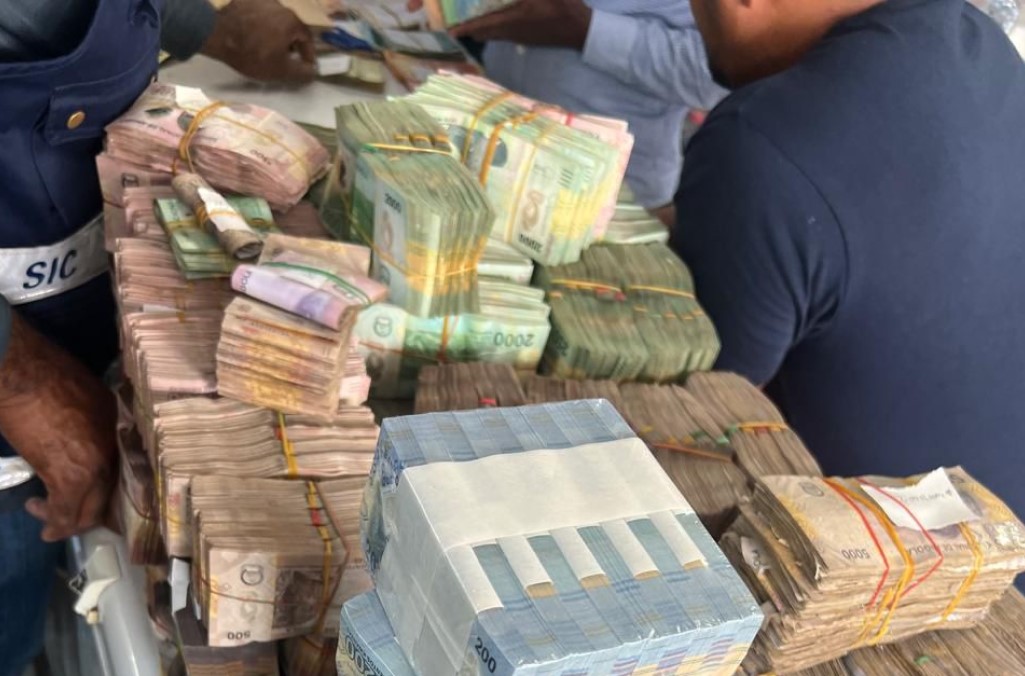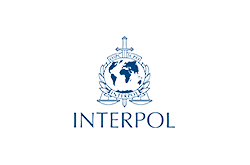LYON, France – A first-of-its-kind operation targeting terrorism financing and the illegal activity supporting it, has led to 83 arrests across six African countries and the identification of 160 persons of interest.
Operation Catalyst (July – September 2025) aimed to identify and disrupt financial flows and schemes found to have connections to terrorism financing and its support networks.
Of the 83 arrests, 21 were for terrorism-related crimes, 28 were for financial fraud and money laundering, 16 were linked to cyber-enabled scams and a further 18 were related to the illicit use of virtual assets.
Over the two-month operation, jointly coordinated by INTERPOL and AFRIPOL, authorities across participating countries screened more than 15,000 persons of interest and entities, uncovering around USD 260 million in both fiat and virtual currencies potentially linked to terrorism-related activities. Approximately USD 600,000 has already been seized, with additional investigations underway to trace and recover further assets.
Tackling terrorist financing is particularly complex for law enforcement, as it often cuts across diverse criminal activities, including fraud, kidnapping for ransom, illicit trade, online scams, Ponzi schemes and the misuse of virtual assets. These illegal activities can be linked to terrorism financing directly—when terrorist groups receive funds from such schemes—or indirectly, through money laundering or intermediary networks. These connections highlight how different forms of crime are increasingly intertwined, underscoring the need for a united and coordinated response.
To tackle this multifaceted threat, participating countries shared intelligence on significant targets at the pre-operation phase. This was supplemented by strategic cyber intelligence from INTERPOL and AFRIPOL with key data from private-sector entities Binance, Moody’s and Uppsala Security.
INTERPOL Secretary General Valdecy Urquiza said:
“Operation Catalyst is the first time, financial crime, cybercrime and counter-terrorism units from multiple African countries have joined forces with INTERPOL and AFRIPOL to target the financing of terrorism. By sharing intelligence, expertise and resources, we can more effectively identify and disrupt the financial flows that support terrorist activities to stay one step ahead of these threats and keep our communities safe.”
Ambassador Jalel Chelba, AFRIPOL’s Executive Director said:
“The success of Operation Catalyst lies in the synergy and convergence of efforts among national units combating financial crime, cybercrime, and terrorism. This joint endeavour, dedicated to disrupting the financing of terrorism across the African continent, illustrates how coordinated action between Member States, facilitated by AFRIPOL and INTERPOL, can effectively address complex and evolving security threats. Such cooperation stands as tangible proof that Africa’s law-enforcement community, when united, offers a decisive and appropriate response in the pursuit of a secure and stable Africa.”
Operational highlights: High-value global scams linked to terrorism financing
In one significant case from Angola, 25 individuals of multiple nationalities were detained following investigations into informal value transfer systems that were identified as connected to potential terrorist financing and money laundering. The operation included the inspection of 30 commercial establishments, where police seized approximately USD 588,000, 100 mobile phones and 40 computers. Sixty bank accounts were also frozen.
In Kenya, a suspected money laundering operation using a virtual asset service provider was identified as having potential links to terrorism financing. The scheme, worth approximately USD 430,000, involved 12 people, two of whom have so far been arrested. In a separate case in Kenya, two individuals were arrested for the online recruitment of young people from East and North Africa into terrorist groups. The funds used for the recruitment and radicalization were traced through a cryptocurrency trading platform, back to individuals in Tanzania.
In Nigeria, the operation led to the arrest of 11 suspected terrorists, including high-level members of several terrorist groups.
One notable transnational case involved a massive cryptocurrency-based Ponzi scheme, which claimed to be a legitimate online trading platform, affected at least 17 countries around the word, including Cameroon, Kenya, and Nigeria. The scheme accumulated more than 100,000 victims around the world, with an estimated loss to victims of USD 562 million. The investigations related to Operation Catalyst found that several large-valued wallets were potentially linked to terrorism financing activities. The case is still ongoing, with investigations currently in progress.
As part of Operation Catalyst, a Red Notice was also issued for an individual thought to be behind a sophisticated cryptocurrency scheme which scammed victims of approximately USD 5 million. The scam redirected funds to multiple addresses and centralized exchange platforms to obscure the trail and convert the assets into fiat currency. Investigators believe the case exhibits several traits consistent with known terrorist financing methodologies.
Notes to Editors
The operation was delivered under the framework of the ISPA programme, funded by the German Federal Foreign Office, to support AFRIPOL in strengthening its position as the lead institution in Africa for preventing and combating transnational organized crime, terrorism, cybercrime, as well as financial crime and money laundering.
Participating countries: Angola, Cameroon, Kenya, Namibia, Nigeria, South Sudan








